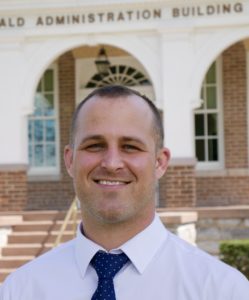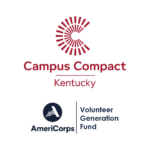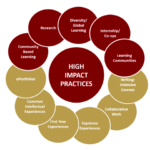KyCC Faculty Spotlight: Abe Cross, Assistant Dean of Students
Service-learning is next-level teaching. If students cannot retain what they learn, or if they cannot apply it, then are they really learning?
 Abe Cross
Abe Cross
Assistant Dean of Students
Lindsey Wilson College
When asked to describe service-learning, Cross shared it is a way to engage in a hands-on, tangible learning methodology that positively impacts a community. He noted that it is one thing to understand the theory – and that is important – but it is another thing altogether to apply this approach. “That’s what service-learning enables our students to do: They get the added bonus of doing it within the capacity of creating a better world, which hopefully becomes habitual,” Cross said.
Utilizing the discipline of service-learning in the classroom has enabled him to become a more thorough instructor for the content. Not only does Cross have to teach it, but now he has to decipher meaningful ways for application. He is held accountable to instill more holistic learning approaches because he chooses to implement service-learning into practice.
Cross explained how he has integrated this style of learning into his content. His first step is to give students the platform to explore and discuss civic issues. They start by having conversations around questions such as: what are the underlying assumptions each of us has about the topic; what parts connect to other issues; do any of us have inconsistencies in our thoughts. Next, Cross’s role is to help students discover opportunities for engagement, asking what the implications of that engagement and how he can help facilitate it.
When asked if he has witnessed student impact by service-learning initiatives, he encompassed situational examples into those that can bring about positive change. “It can change their individual perspectives and future actions when they have an opportunity to engage in that positivity,” Cross said.
He also coached at the collegiate level under a head coach that was very interested in service-learning. “Many student-athletes would grumble about the extra “work” when we would start a service project,” Cross explained. “Despite this, each and every student-athlete would eventually grow to not only appreciate service opportunities but also seek out opportunities for service. This contagious atmosphere would eventually lead this team to be recognized as the Buffalo Funds Five-Star Champions of Character team award recipient by the National Association of Intercollegiate Athletics (NAIA).” While this is not a service-learning example in the classroom, this student learning still contributes to overall willingness and propensity for future service.
According to Cross, service-learning is next-level teaching. He concluded with a couple of questions and closing thoughts to consider: “If students cannot retain what they learn, or if they cannot apply it, then are they really learning? This type of learning is a real-time application of theory, and it should be done in a manner that is impactful to the students. Students will not remember very many specific lectures from their time on campus, but they will never forget how it feels to help others. That type of sentiment can be a catalyst for making a brighter future, and isn’t that why we got into education in the first place?”


